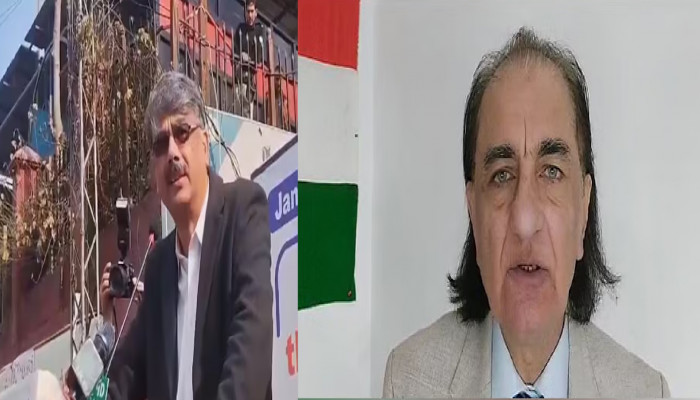Pak politician's jihad call against India sparks widespread criticism
- In Reports
- 02:02 PM, Jan 09, 2025
- Myind Staff
Anwar ul Haq, the prime minister of Pakistan-Occupied Kashmir (PoK), recently called for jihad against India, echoing the long-standing language of terrorists. He said that in order to drive Indian forces out of Jammu and Kashmir, his government would use every resource at its disposal. His comments have drawn widespread criticism, with many denouncing them as a danger to the prospects of preserving peace between the two countries.
Haq's declaration, which was accompanied by cries of "Al-Jihad, Al-Jihad," during a 'Right to Self-Determination Day' protest in Muzaffarabad on January 5, signalled a dramatic shift in Pakistan politics. Haq further called for a resurgence of jihadist culture to "liberate Indian Kashmir" and drive out what he described as "10 lakh Indian troops" stationed in the valley, saying, "If providing electricity for 3 rupees and 2,000 maunds (approximately 37 kilograms per maund) of flour does not sink the state, then jihad in the way of Allah is justified." Jihad is the term used to describe Muslims' attempts to uphold Islamic principles and engage in combat against those who are thought to be Islam's adversaries.
Haq’s controversial remarks have faced strong criticism from human rights activists and political leaders. Amjad Ayub Mirza, a prominent human rights activist, criticised the speech as a desperate move by Haq to revive his declining political support. Mirza cautioned that such statements could increase violence in the already unstable region, put secular voices at risk and worsen tensions along the Line of Control (LoC). Mirza urged the International Court of Justice and the United Nations to act immediately, calling this a ‘reckless move.’ “The international community must not allow such dangerous adventurism to undermine regional stability”. Mirza also asked for Haq's dismissal, charging him with leveraging religious feelings for political ends.
The United Kashmir People's National Party (UKPNP) leader, Sajid Hussain, added his voice to the criticism. Hussain characterised Haq's call for jihad as a grave threat to regional and international peace in a video message. He said that it might provoke violence and thwart attempts to settle the Kashmir dispute peacefully. "This rhetoric is rooted in extremism and represents a dangerous departure from diplomatic norms," he added. Hussain also called on the world community to respond forcefully to these terrorist provocations. “We call on the UN, FATF, and other global institutions to hold leaders like Haq accountable for their incitement to violence,” he further said. Haq's statements could have serious consequences. Experts caution that such provocative remarks might encourage terrorist groups, create instability in the region, and hinder peace efforts.
India has always stated that Jammu and Kashmir is an essential part of the country and has warned that any effort to disturb peace in the region will be strongly dealt with. This most recent development occurs against the backdrop of mounting dissatisfaction in PoK, where residents have been frequently complaining about Pakistan's meddling in their political and economic matters. Critics contend that Haq's emphasis on jihad is a ploy to divert attention away from more rather pressing issues in the PoK, such as the lack of governance and economic woes.







Comments